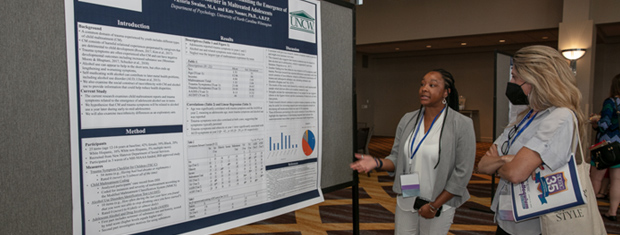




The APSAC Advisor is a peer reviewed quarterly news journal for professionals in the field of child abuse and neglect.
The APSAC Advisor provides succinct, data-based, practice-oriented articles that keep interdisciplinary professionals
informed of the latest developments in policy and practice the field of child maltreatment. It is designed to highlight
best practices in the field and publish original articles and current information about child maltreatment for professionals
from a variety of backgrounds including medicine, law, law enforcement, social work, child protective services, psychology,
public health and prevention in the U.S.
 If you wish to learn more about submitting an article to the Advisor, please click here.
If you wish to learn more about submitting an article to the Advisor, please click here.
This library contains Advisor issues dating back to the first issue in 1988. The most recent issue appears at the top.
Scroll down to select past issues by year and issue number. Once a publication appears in the box, you
can use the Enlarge button to open the document in a new window or tab (depending on how your browser is set up).
This will allow you to view the document with larger print.
To print a document, first use the Enlarge button to open the document in a new window or tab. Then use your browser's Print command.
To return here from a new tab, close the tab. To return from a new window, click your browser's Back button.
In the listing below, click on a year and issue number to see the articles in that publication.
1992 Number 3
How Children Remember and Why They Forget
Children are a fascinating blend of abilities and shortcomings. Children's skill in the use of memory is no exception. In some respects, the capacity for remembering is less well developed among children than adults. In other respects, however, children's memory abilities are most impressive.
Can Therapy Induce False Accusations of Sexual Abuse?
Among the concerns about the veracity of children's accounts of sexual abuse are two that relate to therapy.
The following article is excerpted from Witness for the Defense (1991), in which Dr. Loftus and her co-author Katherine Ketcham describe Dr. Loftus's expereince as an expert witness for the defense.
Enhancing Children’s Memory With the Cognitive Interview
The "cognitive interview" is a collection of memory enhancement techniques developed by R. Edward Geiselman to aid forensic questioning of adult crime victims.
Young children must find it very tiresome to be interviewed by adults. Adults often can't understand what children say, or don't understand what children mean - and when adults finally understand, they don't necessarily believe childrens' stories.
Studying Delayed Memories of Childhood Sexual Abuse
Empirical investigation of the incidence and long-term effects of childhood sexual abuse spans less than 20 years. In that time, nevertheless, we have learned much about the many sequelae of sexual acts against children.
Adult Memories of Childhood Abuse: Preliminary Findings From a Longitudinal Study
This study provides one of the first opportunities to evaluate whether some women who reported sexual abuse in childhood will fail to disclose abuse when asked about it 17 years later.
Misplaced Attention to Delayed Memory
The phenomenon of delayed memory provides another bullet for the bushwhackers of the backlash. With a popular mindset that the most important events should be the most vividly memorable, there is predictable distrust toward someone who claims to remember salient trauma after years of amnesia.
The purpose of Journal Highlights is to alert readers to current literature on child abuse. Selected articles from journals representing the variety of disciplines reflected in APSAC's membership are presented in the form of an annotated bibliography.
ASPAC Advisor 5(3) - Full Issue